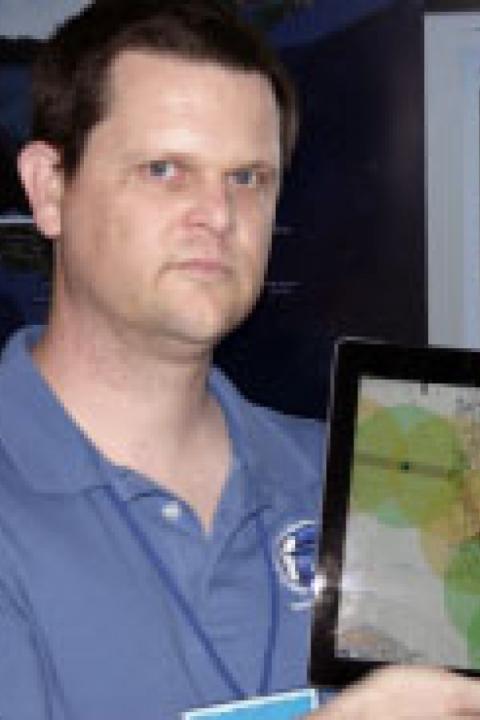
Kurt Schwehr received his Ph.D. from Scripps Institution of Oceanography, where he studied marine geology and geophysics, and received a B.S. in Geology from Stanford University. Before joining CCOM, he worked at the Jet Propulsion Lab (JPL), NASA Ames (ARC), the Robotics Institute (RI) at Carnegie Mellon University (CMU), and the United States Geological Survey (USGS) in Menlo Park. Kurt is currently an Engineer at Google.
His research includes components of computer science, geology, and geophysics. He looks to apply robotics, computer graphics, and real-time systems to solve problems in marine and space exploration environments. He has been on the mission control teams for the Mars Pathfinder, Mars Polar Lander, Mars Exploration Rovers, the Phoenix Mars Lander and the Mars Science Laboratory. He has designed computer vision, 3D visualization, and on-board driving software for NASA's Mars exploration program. Fieldwork has taken him from Yellowstone National Park to Antarctica.
His projects include the Chart-of-the-Future (CotF), the maritime Automatic Identification System (AIS), visualization techniques for underwater and space applications, marine geology, Geographic Information Systems (GIS) and Mars spacecraft. Schwehr has been a member of the Radio Technical Commission for Maritime Services (RTCM) SC121 working group: Expanded Use of AIS Within VTS. He led the Right whale AIS Project (RAP) which transmits messages to ships in the Boston Approaches with the aim of reducing the risk of ships striking right whales in the traffic lanes by using the Cornell/WHOI listening network.
Schwehr publishes a number of open source software libraries and is a contributor to several other open source project. He enjoys using Emacs org-mode, Python, C++ and git in his research.